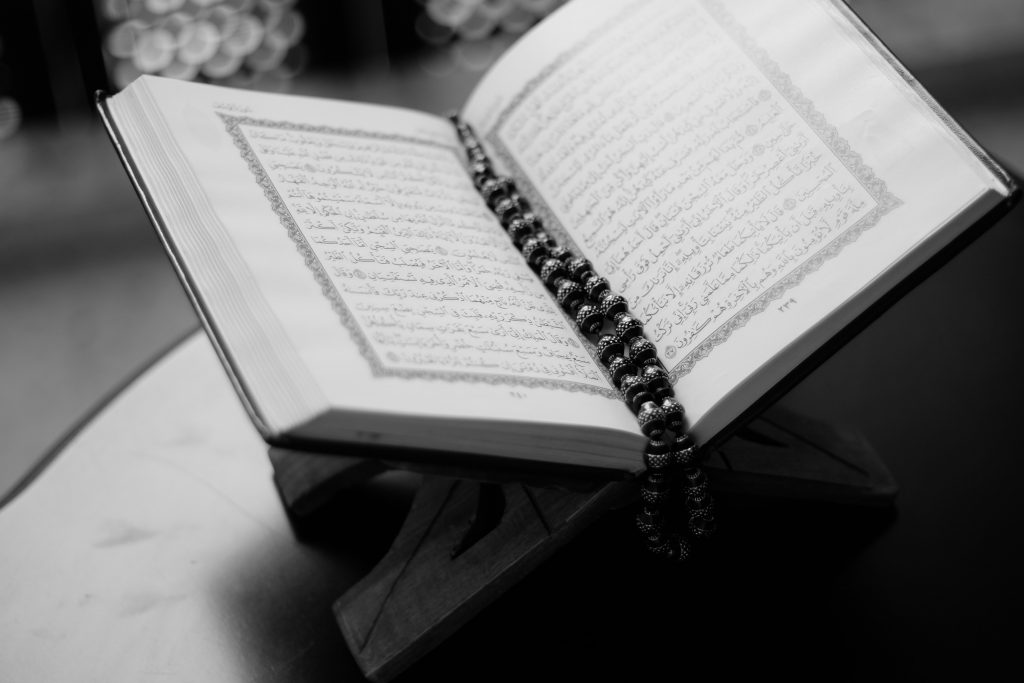Narrated by `Aisha:
Allah’s Messenger (ﷺ) said, “Do good deeds properly, sincerely and moderately and know that your deeds will not make you enter Paradise, and that the most beloved deed to Allah is the most regular and constant even if it were little.“ (Sahih Bukhari 6464)
Generic version Copaxone is available in a generic form called glatiramer acetate. Many different mast cell stabilizers exist currently in the market. Atenolol has similar, although lesser, cardioprotective effects, and both drugs have been shown to normalize myocardial contractility https://onlinepharmacyinuae.com/cialis/. Tirofiban works by preventing platelets from forming blood clots.
It’s getting near to Ramadan alhamdulillah. Ramadan awakens the spiritual vibe that can’t be compared to anything: it’s so special, it’s so contagious, it’s very powerful, it spreads a heart-warming feeling that inspires people to turn back to Allah and be a better Muslim.
So many people have shared some Ramadan reminders and productivity tips. There’s no better way to welcome this blessed month that preparing ourselves for it, right? It’s tempting to set all kinds of goals and targets that we want to achieve in Ramadan, but the real question that not everyone can answer is: how can we really achieve those goals?
We all want to do more and achieve our Ramadan target in shaa Allah. But like every other activity, the hardest part can be found in two things: getting started and being consistent. In this article, we’ll discover some tips to improve three of our daily ibaadah: salah, reading the Qur’an, and du’aa/dhikr.
- Salah
Rasulullah ﷺ said: “The first matter that the slave will be brought to account for on the Day of Judgment is the prayer. If it is sound, then the rest of his deeds will be sound. And if it is bad, then the rest of his deeds will be bad.”
[Recorded by al-Tabarani. According to al-Albani, it is sahih. Al-Albani, Sahih al-Jami, vol.1, p. 503.]
This is the first thing that we need to improve. Salah is the most fundamental ibadah in Islam, right after tawheed. Start with the five obligatory salah. Have you performed all five every single day? If not, start to re-schedule your whole day to make time to perform all the five obligatory salah. I know that for some people there will be challenges like living in non-Muslim countries where it’s hard to find a masjid or prayer room. Or some people live in an environment where the people don’t perform salah often (even if they’re Muslim), so it’s not a habit to perform salah daily. But I believe that no matter what our circumstance is, Allah subhanahu wa ta’ala will provide a way for His servants who want to do good. Find out the location of the nearest masjid or prayer room from your office or school. When you go out, make sure to google or ask people if the place that you’ll visit has masjid or prayer room. If you mostly live at home or work from home, make a special spot in your home for salah. Prepare for the best clothes (qamees or abaya) that you will use for salah. Go for wudu right after athaan, if you live in a place where there’s no athaan, make sure you have an athaan app in your phone. No matter how busy we are, there is no deed that is more important than salah. When we prioritize salah, every other thing we need to do will be alright too bi idhnillah.
For those who have performed all the five obligatory salah, you can aim to perform it always on time. For men, praying congregatory in Masjid is the best, so schedule yourself to go to Masjid or prayer room right after every athaan. For women, we can go to Masjid but it’s better (and easier) for us to pray at home. So when at home, train yourself to never procrastinate salah. Go to perform wudu right after athaan, perform salah on time. Some women find themselves slacking when it comes to praying on time at home since we need to rely on our own selves to pray on time, unlike in Masjids where the environment is very supportive for praying on time. It needs full commitment to ward off the devilish whisper to procrastinate salah. It will be hard at first, but trust me, you’ll get used to it in shaa Allah. Three simple words to motivate you to go to salah on time, right after athaan: JUST DO IT.
If you’re among those who have prayed the five obligatory salah on time, you can increase your target for other supererogatory salah. You can start with the nawaafil salah. After that, dhuha salah and witr salah. After that you can also aim for one of the most special recommended salah which has so many rewards, the qiyaamul layl (night prayer). You can find out more about the importance and benefit of these superogatory salahs on Islamqa.info in shaa Allah.
- Reading Al-Qur’an
Rasulullah ﷺ said: “Whoever reads a letter from the Book of Allah, he will have a reward. And that reward will be multiplied by ten. I am not saying that “Alif, Laam, Meem” is a letter, rather I am saying that “Alif” is a letter, “laam” is a letter and “meem” is a letter.” So increase your recitation of the Qur’an to gain these merits, and to gain the following merit as well.” (Tirmithee)
How many times do you want to complete the Qur’an in this Ramadan? One, two, three, or more? Aiming for more is great! We sincerely hope that each of us could accomplish our Qur’an completion goals this Ramadan, in shaa Allah.
For some people, it’s easy to complete reading the whole Qur’an since they have made it a habit to read it daily. Some people read one juzz a day, so they can complete the whole Qur’an every month. When these people entered Ramadan, they could complete the Qur’an three times since they have built up the habit before, they only need to increase their speed to achieve more goals. But how is it for the people who haven’t build up the habit of reading Qur’an daily?
First thing first, don’t panic! Yes, you might feel discouraged because you think that it’s too late (and hard) to form a new habit and you have seen some of your friends who have posted or talked about their impressive Qur’an completion target. But believe me, the fact that you already thinking of the plan to read more Qur’an this Ramadan is the sign that Allah subhanahu wa ta’ala has opened the path of hidayah for you! Allah wants you to be His righteous servants, Allah chooses you to be among the amazing people who will attain so many barakah in the blessed month of Ramadan. Don’t waste this chance of hidayah, be grateful, prepare yourself for this amazing journey!
What you need to focus on now is to train yourself to read more Qur’an every day. An effective way to read Qur’an is to schedule it around our salah. For the very first day, you can start by aiming for one page a day. A page of Qur’an contains 15 lines, you can divide it for each salah by reading three lines after every salah. This will be easy in shaa Allah. After you’re used to read one page a day, you can increase your target to 3 pages, 5 pages, even to one juzz a day. You can even divide the five daily salah to ten times of Qur’an reading time by reading the Qur’an before and after salah. For those who have set up a habit of reading Qur’an more than one juzz a day, you can follow this tip too by multiplying your own target. The key is to start small and be consistent.
You can also read the Qur’an before you go to sleep, or after you wake up before fajr. Just customize your target and time according to your own capabilities and schedule and increase your target as you become more accustomed to the new habit. Remember, BE CONSISTENT. It’s the quality that matter, not quantity. We want to build a good habit that last for a lifetime, not just in Ramadan. Also, Allah ‘azza wa jall knows our intention and will reward every effort we spent to be His righteous servant. Never belittle every single letter from the Qur’an that we read. With the pure intention, everything will be worth it in shaa Allah.
- Du’aa and Dhikr
الَّذِينَ آمَنُوا وَتَطْمَئِنُّ قُلُوبُهُم بِذِكْرِ اللَّهِ ۗ أَلَا بِذِكْرِ اللَّهِ تَطْمَئِنُّ الْقُلُوبُ
“Those who have believed and whose hearts are assured by the remembrance of Allah . Unquestionably, by the remembrance of Allah hearts are assured.” (Qur’an 13:28)
I know that du’aa and dhikr are important, but the moment that changed my perspective towards the real importance and benefit of du’aa and dhikr is when I worked as a teacher in an Islamic kindergarten. Being a pre-school teacher forced me to re-learn and memorize many daily du’aa and dhikr. I found out that there are some du’aas that I have learned in my school years that weren’t supported by sahih hadith, and there are so many correct du’aa and dhikr that I haven’t memorized. I eventually read the hisnul muslim (fortress of the muslim) book thoroughly to learn about the sahih du’aa and dhikr.
That was just the first and second step of learning (as in the learning hierarchy): knowing and memorizing. The hard part is the third step: application. It is to apply all the du’aa and dhikr every day. Being a teacher means that we’re the ones who lead and constantly remind the students to recite their daily du’aa and dhikr. That experience really changed my life. Before that, I often forget to recite the du’aa after eating, the du’aa before going with vehicles, du’aa when hearing thunder, skipped some parts of morning dhikr, and so many other daily du’aas. And after that, I really tried my best to incorporate daily du’aa and dhikr in my life.
You can start by finding your du’aa and dhikr book. Yes, just find it, it’s likely that you or your other family members have bought it. If you don’t have one, you can buy it at your nearest Islamic bookstore. If you’re not a fan of book, just install some dhikr app or save some dhikr article from the net. After that, memorize the dhikr after salah. The dhikr after salah is mustahabb (highly recommended) ibaadah. It’s pretty short, with and most of the parts are already familiar to us (ayatul kursi, surah an-naas, surah al-falaq, surah al-ikhlas, etc). After memorizing you can start applying it on your next salah. Yes, start now! If you haven’t memorized it completely, just read your book/phone, you’ll finally memorize it after a while in shaa Allah. Repeat the next step with morning and evening dhikr, du’aa of eating (before, after, du’aa for breaking sawm), du’aa of natural phenomenas (rain, thunder, lightning, etc), and other du’aa and dhikr.
You might have noticed that all of these tips include the fundamental keys to achieve success in everything we do: start small and be consistent. May Allah ‘azza wa jall grant us all istiqamah (steadfastness) in every ibadah and every good thing that we do. Also, may Allah subhanahu wa ta’ala make it easy for us to perform so many good deeds and achieve our ibadaah targets in this Ramadan.
Do you have any other tips in building a new habit? Let us know in the comments below!



